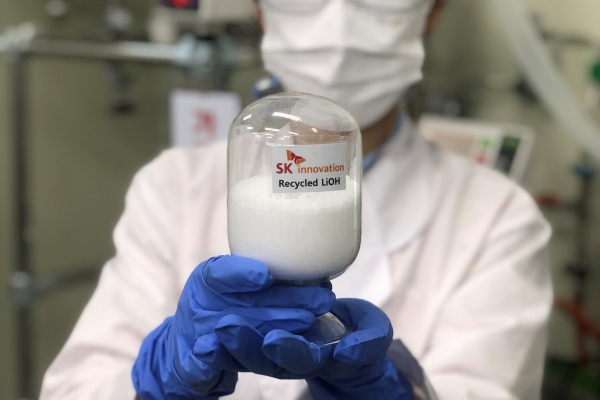South Korean battery makers speed up recycling business in U.S. ahead …
페이지 정보

작성자 관리자
조회 247회 작성일 23-05-03 18:00
조회 247회 작성일 23-05-03 18:00
본문
South Korean battery makers speed up recycling business in U.S. ahead of IRA
2023.01.26 10:22:02 2023.03.02 14:01:01

Extracting lithium hydroxide from waste batteries [Image source: SK innovation]
South Korean battery majors are realigning their battery waste recycling business by investing in a U.S. firm or forging joint ventures to benefit from Washington’s Inflation Reduction Act (IRA) that restricts tax grants on electric vehicles with batteries and materials sourced from outside the U.S.
According to multiple sources from the car battery industry on Wednesday, Korean battery makers are set to move away from its heavy reliance on China to source battery components and materials.
Under the U.S. IRA, companies are required to use more than 50 percent of the battery components and over 40 percent of the raw materials produced in North America or its partners of free trade agreement from this year. In 2027, 80 percent of the key minerals should be sourced in the U.S. or its FTA partners. The rules will be applied after March when the U.S. Department of the Treasury unveils specific guidelines.
Currently, Korea relies heavily on China for key minerals needed to manufacture batteries. Nearly 90 percent of the entire imports of lithium hydroxide including lithium oxide, a key material for secondary batteries, was from China last year, according to Korea International Trade Association (KITA). China accounted for 72.8 percent of the entire cobalt oxide and hydroxide imports in 2022.
Extracting cobalt, copper, nickel, and lithium from waste batteries can help Korean battery majors reduce reliance on Chinese minerals and save costs.
LG Energy Solution Ltd. and LG Chem Ltd. invested 60 billion won ($48.5 million) to secure a stake in Li-Cycle Holdings Corp., the largest battery recycling company in North America.
BlueOval SK, a joint venture between SK on Co. and U.S. auto giant Ford Motor Co., also plans to use waste batteries from its local plant for battery production through North American battery recycling company Redwood Materials Inc.
According to energy market tracker SNE Research, the global waste battery market is projected to reach 12 trillion won in 2030 and 87 trillion won in 2040 from 3 trillion won in 2025.
By Jung You-jung and Choi Jieun